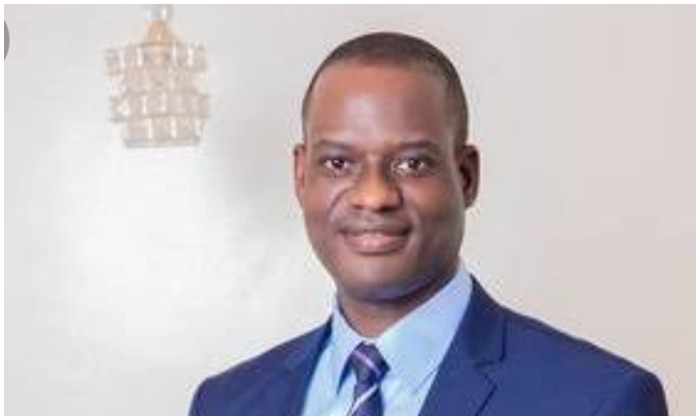Chairman of the Presidential Fiscal Policy and Tax Reforms Committee, Taiwo Oyedele, has said that ongoing tax reforms must include measures to hold local governments accountable for the revenues they receive.
Speaking at the Lagos Chamber of Commerce and Industry’s Mid-Year 2025 Economic Review on Wednesday, Oyedele described Local Governments as major contributors to Nigeria’s multiple taxation problem, lamenting the lack of transparency in their revenue collection and spending.
Oyedele said, “In the whole of Nigeria, in 2023, all the Local Governments reported under N15bn as taxes collected. That should be the revenue of just two or three LGAs, not 774.”
He expressed concern that the autonomy granted to local governments to manage their funds had not translated into better governance or accountability.
“I have not celebrated that judgment because if one person was misusing your funds and the solution is to give it to 50 other people, you’ve not solved the problem. As we speak today, you will not find any budget or audited accounts of any local government online,” he said.
Oyedele stressed that tax reforms must compel local governments to publish budgets, audited accounts, and data on infrastructure and service delivery.
“We need to start with data. For instance, if a local government has 15,000 km of roads and 14,000 km are unpaved, that’s the kind of data needed. Or if 58,000 households have no access to clean water. Use this data to plan, budget, and spend wisely, and then publish everything online,” he said.
According to him, the committee is already working with the National Assembly to insert clear local government governance responsibilities into the Constitution.
“They are supposed to provide homes for the homeless, sanitation, clean water; many of them are not even aware. Instead, they do one kilometre of substandard road and call it the dividend of democracy,” he said.
On the broader reform efforts, Oyedele noted that several measures are already in progress, including efforts that are not yet public. “We’ve started the journey. We’re doing a lot we can’t say publicly. Some things we are trying to get into the Constitution so they cannot be reversed,” he said.
He disclosed that the committee is strategically timing some proposals, such as engaging lawmakers after elections, when they are more likely to be objective. “As recent as two days ago, I was at the National Assembly discussing how to make some of these things happen. We’re also going to meet with Mr President to share our thoughts,” he said.
Oyedele also revealed plans to operationalise a tax ombudsman, who would be headquartered in Abuja and eventually have a presence in all states, stating, “The ombudsman will report to the National Assembly and the Nigerian people. Their reports will be published quarterly online so people can hold them accountable.”
To improve public engagement, the committee plans to establish call centres where citizens can communicate in their native languages. “We are translating tax notes into Yoruba, Hausa, Igbo, Pidgin, and also converting them to audio. Even if you can’t read or write, you can interact with the tax note, with Artificial Intelligence integration,” he said.
On informal tax agents, commonly known as agberos, Oyedele admitted the issue is challenging but said discussions are ongoing with state and local governments to formalise their activities. “One of the strategies is to integrate them into a system where they no longer collect cash. Train them to be civil, so they don’t beat people or seize wares. Pay them a salary so they don’t sabotage the system,” he said.
Addressing the incentive regime, he disclosed that the Economic Development Incentive will replace the Pioneer Status Incentive, but existing beneficiaries can continue till December 1, 2025.
He explained: “After that, you can’t enjoy both. You must choose. If the Economic Development Incentive is more beneficial, you can switch. It’s clearer now, eligibility, sunset clauses, validation of investment, and you can get exemptions for up to 10 years.” He added that the incentive covers all key sectors and will support investors with tax credits based on verified investment levels.
Meanwhile, Oyedele noted that the tax reforms aim to deliver a wide range of outcomes for businesses, households, and the government. For businesses, the committee expects reforms to reduce business risks and eliminate the minimum tax on capital. It also targets greater certainty in tax treatment, including statutory tax rulings and clear limitation periods.
The reforms aim to reduce the overall tax burden, lower rates, harmonise multiple taxes, ease the withholding tax regime, and accelerate tax refunds. Businesses will also benefit from access to input Value-Added Tax credits, research and development tax reliefs, and a more competitive tax environment.
For households, he said the reforms will bring economic relief such as wage awards, transport subsidies, and tax waivers on food imports and fuel products. The goal is to ease the tax burden by exempting low-income earners and applying reduced rates for the middle class, while also broadening VAT exemptions.
Oyedele stated that the reforms will create opportunities for small businesses and startups, support remote job facilitation, and introduce tax breaks for income from investments.
He added that for the government, the committee’s vision is for the tax reforms to drive economic growth, stabilise the macroeconomic environment, improve Nigeria’s credit rating, and lower fiscal deficits and the cost of debt servicing.
The reforms are also expected to boost non-oil revenue performance, raise the tax-to-Gross Domestic Product ratio, and ensure fiscal sustainability through greater efficiency, optimisation, and harmonisation of taxes across all levels of government.
He reiterated that tax reform is not just about collecting revenue, but building trust and using data and transparency to make governance more effective at all levels, especially the local government. “You only feel the real impact of governance when the local government works,” Oyedele said.















